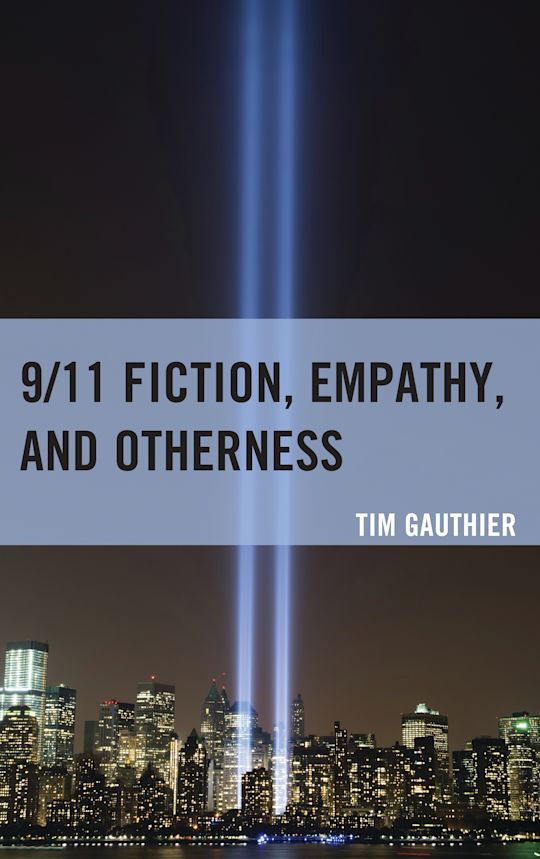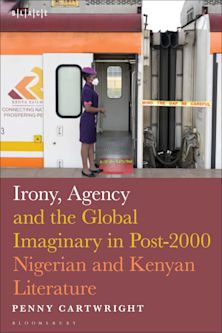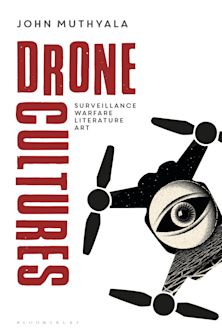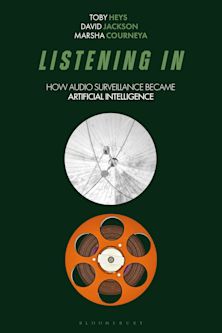- Home
- ACADEMIC
- Literary Studies
- Contemporary Literature
- 9/11 Fiction, Empathy, and Otherness
9/11 Fiction, Empathy, and Otherness
You must sign in to add this item to your wishlist. Please sign in or create an account
Description
9/11 Fiction, Empathy, and Otherness analyzes recent works of fiction whose principal subject is the attacks of September 11, 2001. The readings of the novels question and assess the validity and potential effectiveness of both the subsequent calls for a cosmopolitan outlook and the related, but no less significant, emphasis placed on empathy, and exhibited in such recent studies as Jeremy Rifkin's The Empathic Civilization, Karsten Stueber's Rediscovering Empathy, and Julinna Oxley's The Moral Dimensions of Empathy. As such, this study examines the extent to which "us" and "them" narratives proliferated after 9/11, and the degree to which calls for greater empathy and a renewed emphasis on cosmopolitan values served to counterbalance an apparent movement towards increased polarization, encapsulated in the oft-mentioned "clash of civilizations." A principal objective of the book is thus to examine the ethical and political implications revealed in the exercising or withholding of empathy. For though empathy, in and of itself, may not be sufficient, it is nevertheless a vital component in the generation of actions one might identify as cosmopolitan. In other words, this book examines the responses to 9/11 (in both Western and non-Western novels) in order to uncover what their dramatic renderings might tell us about the possibility of a truly globalized community. The attainability of any cosmopolitan engagement is contingent upon our abilities to understand the other, knowing always that otherness eludes our grasp, and the best we can do is imagine some version of it. It is primarily in this capacity that the novel has a role to play. Whether it is the challenge of connecting with the survivors of trauma and the inhabitants of a traumatized city, or with a hyperpower that has experienced its own vulnerability for the first time, or even with the terrorist who seeks to commit violent acts, these novels afford us the means of examining the complex dynamics involved in any exhibition of fellow-feeling for the other, and the ever-present potential failure of that engagement.
Table of Contents
Introduction.
Chapter One. Empathy and Trauma: The Representation of the Falling People in Art and Fiction
Chapter Two. Otherness as Counternarrative in the Graphic Novel: Spiegelman, Rehr, Torres
Chapter Three. French Fiction and the Utopian Potential of 9/11
Chapter 4. “Toward these uncanny young men”: Entering the Mind of the Terrorist
Chapter Five. “Selective in Your Mercies”: Privilege, Vulnerability, and the Limits of Empathy in Ian McEwan’s Saturday
Chapter Six. The Otherness of Islam in Amy Waldman’s The Submission
Chapter Seven. Communal Trauma, Otherness, and the Wounded City: Hunt and Lethem
Virtual or Communal Trauma?
Epilogue
Bibliography
About the Author
Product details
| Published | Apr 02 2015 |
|---|---|
| Format | Ebook (Epub & Mobi) |
| Edition | 1st |
| Extent | 284 |
| ISBN | 9780739193464 |
| Imprint | Lexington Books |
| Publisher | Bloomsbury Publishing |
About the contributors
Reviews
-
Gauthier’s 9/11 Fiction, Empathy, and the Problem of Otherness makes a strong case for the cultural relevance of fiction within contemporary culture by examining an array of novels that address the 9/11 terrorist attacks—including texts that have not been discussed much by literary critics—and focusing on the ways in which they explore and reveal both the potential of empathy as a pathway toward reaching a cosmopolitan ideal, and all the obstructions that limit such possibilities. The book is timely in that it actively participates in and contributes to current scholarly critical debates surrounding both empathy and cosmopolitanism.
Magali Cornier Michael, Duquesne University
-
Tim Gauthier’s brilliant exploration of the possibilities and pitfalls of empathy illuminates both 9/11 fiction’s encounter with otherness and the terrorist attacks’ polarizing but also unifying potential. Combining theoretical sophistication with fresh and thoughtful analysis, 9/11 Fiction, Empathy, and the Problem of Otherness is a must read for anyone who wants to understand the role of empathy and cosmopolitan engagement in the fiction that emerged after those traumatic events.
Sonia Baelo-Allué, University of Zaragoza
-
None of the currently available critical literature on 9/11 fiction can match Tim Gauthier’s combination of theoretical sophistication and analytical rigor. His exciting new study furnishes new readings of the established canon of 9/11 texts, as well as provides ingenious encounters with less familiar texts, such as graphic novels and fiction from France. Gauthier’s study is now the place to begin for students and others interested in getting to grips with this body of work.
Robert Spencer, The University of Manchester



































